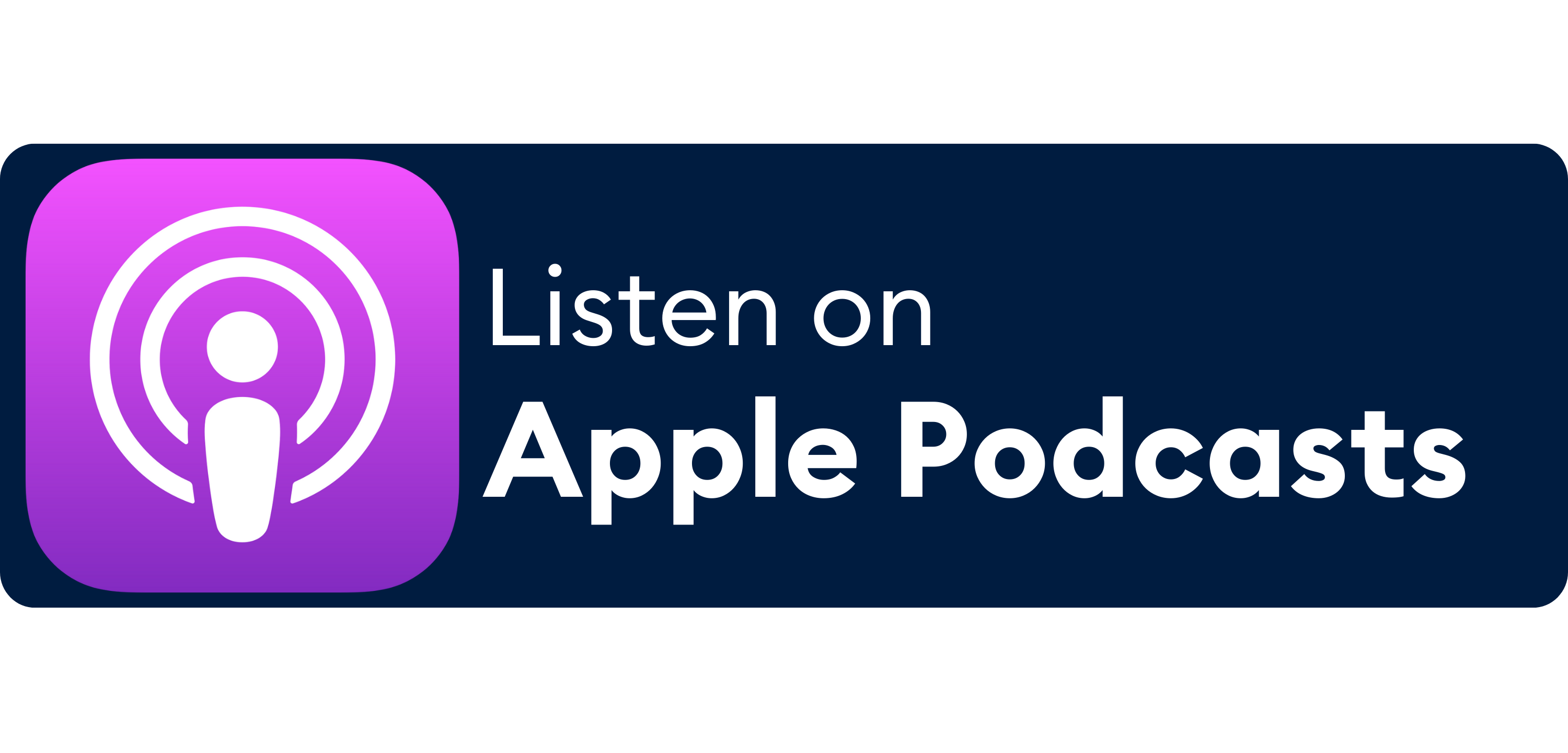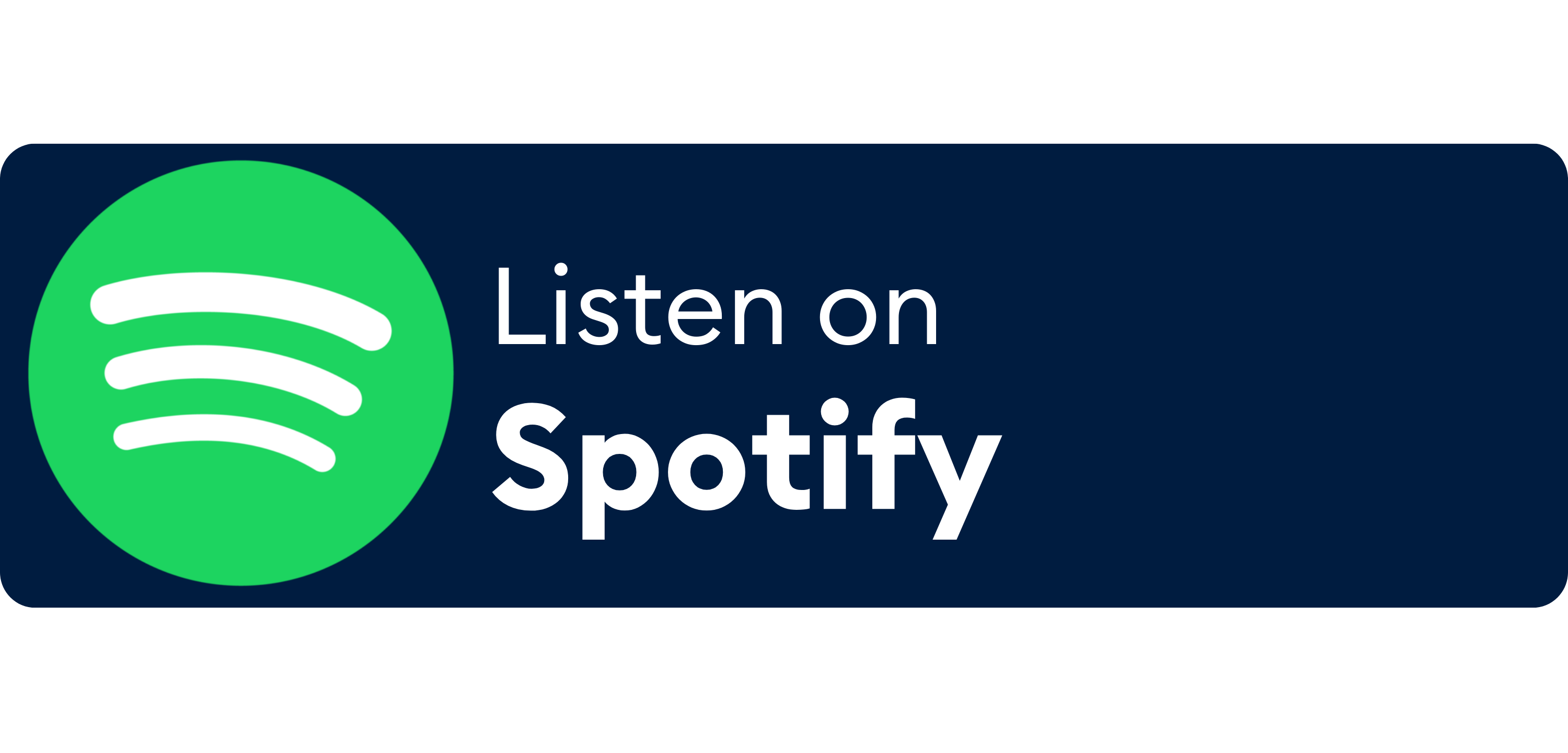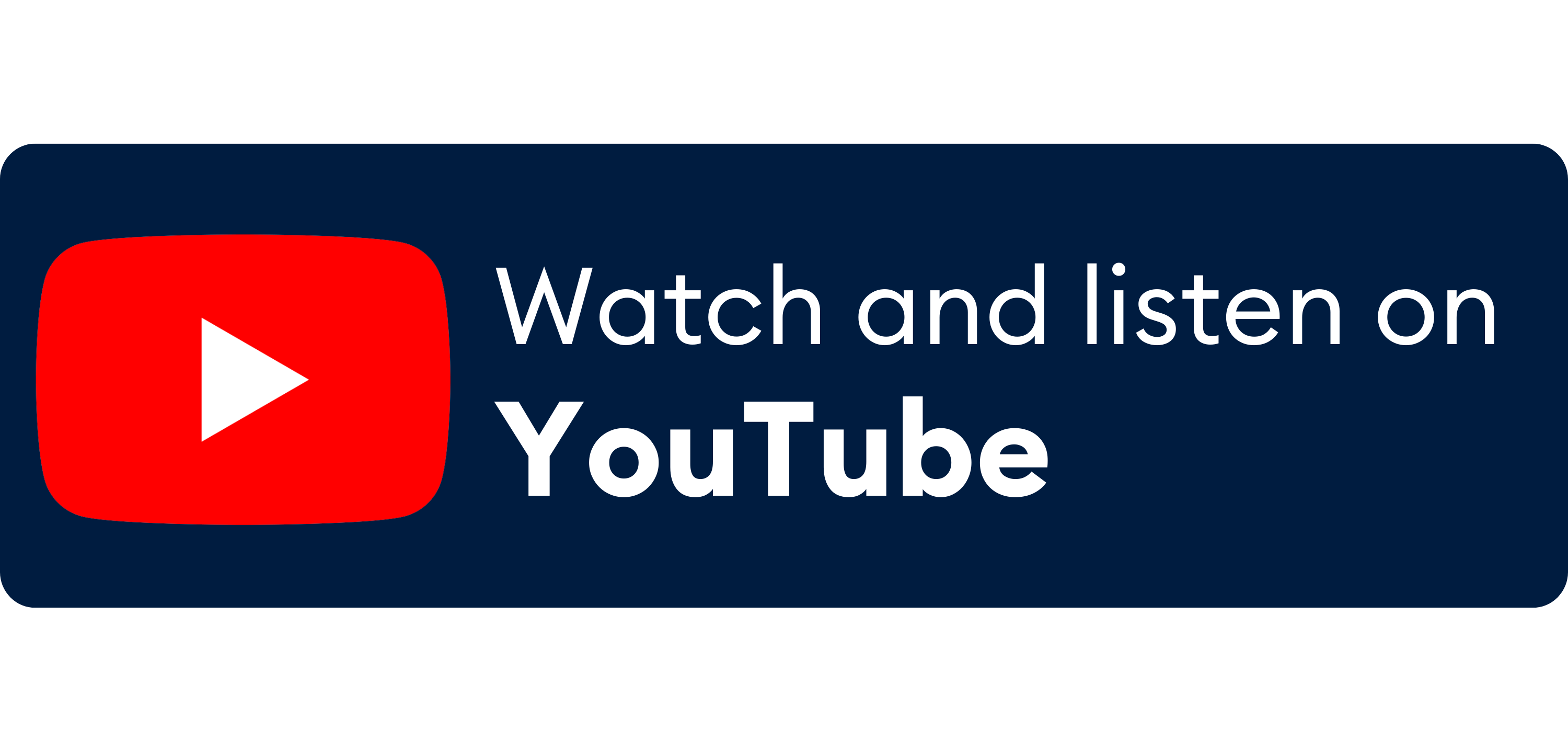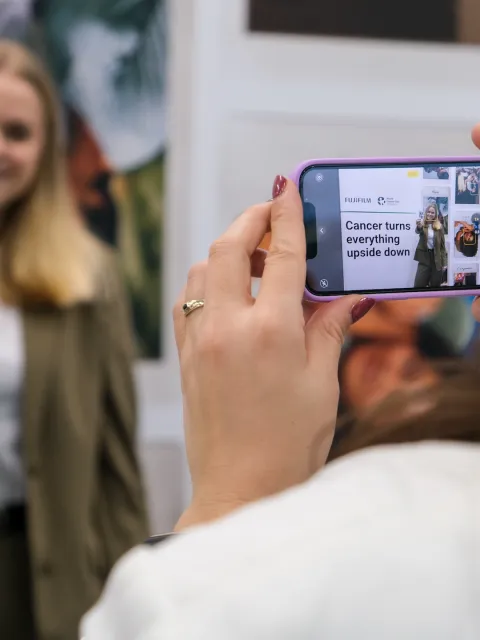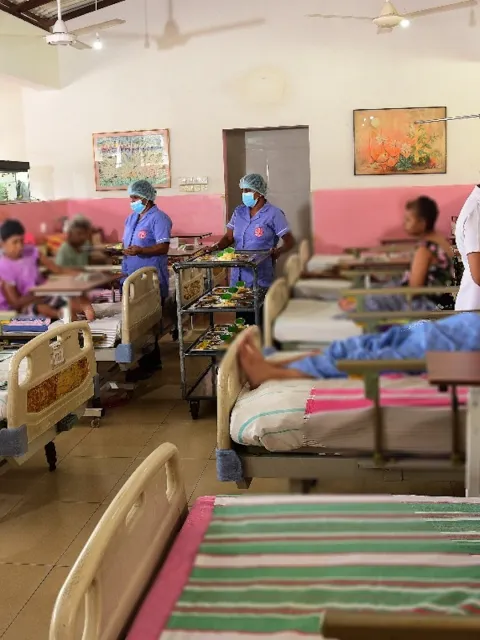Podcast "Let's Talk Cancer": Inequities in access to essential medicines and global shortages

Hans Hogerzeil, formerly of WHO and Charles Gore of Medicines Patent Pool explore the reasons for global medicine shortages and some potential solutions to address the systemic lack of access to essential cancer medicines in low- and middle-income countries.
Drug shortages, from antibiotics to vital cancer drugs, have grown into a global concern. Due to issues like procurement practices, supply chains, diagnostics capacity, workforce training, and health systems infrastructure, the unavailability of these medicines hit lower-income countries the hardest.
These countries already suffer from a systemic lack of access to essential medicines. Only 50% of cancer medicines on the WHO Essential Medicines List are currently accessible in low- and middle-income countries.
Last year, the UICC, along with 30 partners, formed the Access to Medical Oncology (ATOM) Coalition to tackle this challenge.
This episode of Let's talk cancer explores the reasons for widespread medicine shortages and lack of access to essential medicines, and ways to ensure that everyone receives the medicines they need, when they need them.
"In many countries they are not available and if they are available they are simply not affordable. [...] We need to ask ourselves a different question than the one we've tended to ask, which is 'can we provide access'. We need to ask ourselves, 'how can we provide access'. And that's different, because that assumes that we can do it."
– Charles Gore, CEO of Medicines Patent Pool
"Universal health coverage is not going to be achieved by the market alone. You will always have 20%, 40% of the people who are too poor to pay for even their basic health care. The only way is a longstanding system of social health insurance."
– Hans Hogerzeil, former Director of Essential Medicines at WHO
See podcast transcript below
Listen on: Spotify | Stitcher | Apple Podcasts | Amazon Music | Audible | Deezer
Get notified of new podcasts by email
Podcast transcript
Shalini Jayasekar Zurn: Hello and welcome to this episode of Let's Talk Cancer. I'm Shalini Jayasekar Zurn, senior advocacy manager with the Union for International Cancer Control. And I'll actually be taking over from the usual host, Cary Adams, as he's out of the office. So today we will talk about access to medicines or rather the problem of lack of access to them. Medicine shortages have become a major issue around the world and we've seen everything from antibiotics to cancer treatment and medicines for chronic illnesses such as heart diseases, missing from pharmacy shelves. Now, these medicine shortages are a particular burden in low-and middle-income countries where access to and availability of essential cancer medicines and pain relief have been a long-standing and systemic issue. And to dive deeper into this topic, I'm so pleased to welcome two guests to the podcast today. Hans Hogerzeil, the former director of Essential Medicines and Pharmaceutical Policies at the World Health Organization, and he'll be joined by Charles Gore, who is the Executive Director of the Medicines Patent Pool. And the Medicines Patent Pool, or MPP, is also an observer to the Access to Oncology Medicines Coalition, which we will discuss later in the podcast. So why are we seeing this global shortage of medicines and is there a reason it's more acute now? Hans, perhaps you can take this one and start us off on the discussion.
Hans Hogerzeil: There may be several reasons for it. First of all, I think there has been such enormous competition that it has become very cheap and usually there will be many manufacturers, but there will only be very few manufacturers of raw material. So the bottleneck, in my opinion, is with the raw material. And some of these companies may just have decided that their production lines can be better used for medicines or materials that can be sold at higher prices. I think that was one of the reasons why some of these medicines just simply disappeared. I know some of the high end Indian manufacturers, rather than being the pharmacy for Africa, would basically say, "okay, let's let's use our production lines for medicines we can sell in Europe and in America at much bigger profits." So some of them have been too cheap. I think there's another reason: sometimes the competition or the tendering has been so fierce that it pushes the companies out of the market.
Shalini Jayasekar Zurn: Charles, would you like to add anything to that?
Charles Gore: One of the things that I think is - absolutely shortages show it, but but also Covid has shown it - is that the market doesn't fix everything. The market actually tends to create reliance on lowest-cost producers. And what happens is, as Hans was saying, is that other people get driven out of the market. So what you have is things as cheap as they could be, but you've lost security. And it's an understanding that you've got to pay for security and things will be a little bit more expensive. But if you just go for efficiency, you're in terrible, terrible danger because, we saw it in COVID with, for example, production of a certain vaccine concentrated in India: something goes wrong, in that case, it was an export ban and that's it. And nobody's got it. And this is the thing.
Shalini Jayasekar Zurn: Why do these medicine shortages and lack of access to essential medicines weigh so heavily on low-and middle-income countries?
Charles Gore: One of the things that you see is that the greatest burden in terms of cancer deaths are in low-and middle-income countries. So they suffer particularly from these shortages. It's critical that we make sure that low-and middle-income countries have the basics. But there's been such an evolution of cancer medicines over time that some of the new ones are just definitely better. And the medicines patent pool really concentrates on the newer medicines that are still on patent, but often the lack of them is due to the fact that they are not even registered in a lot of these countries. And if they are, then they're either not on the country's essential medicines list. They're certainly in most cases not being paid for by the countries. So it's out of pocket expenditure. So essentially in many countries they're not available. And if they are available, they're simply not affordable.
Shalini Jayasekar Zurn: So how can we address this issue of medicine shortages worldwide just for the basic essential off-patent medicines? Hans, perhaps you can take this one.
Hans Hogerzeil: Well, many people say this is a market failure. The market is not able to to serve all the people. And especially, as Charles was saying, still so many people pay out of pocket and have no insurance or anything like that. But we will say it's not a market failure. It's a policy failure to rely on the market to resolve this. So I would really support a very strong role for government. I mean, universal health coverage in general is not going to be achieved by the market alone. You will also have 20-40% of people who are simply too poor to pay for their even basic health care. And the only way is a long standing system of social health insurance. It basically means a sort of state-managed, state-controlled and also state-subsidized health insurance system for everybody. And let me remind you that the health insurance system is actually the only way to do it because it has what we call a triple equity shift. There's three ways income or wealth is being transferred. First one is, of course, that the healthy pay also for the sick, that's the insurance system. But secondly, the rich pay for the poor. And the third one, that many people forget: the young, subsidize the old. And by the triple shift, it is in the end possible that people with cancer and expensive diseases or long-standing diseases like diabetes, which is maybe not so expensive per month, but goes on lifelong, only that way can you ensure that everybody gets access. So to me, the only answer towards universal health coverage is social health insurance with a large subsidy by the government.
Shalini Jayasekar Zurn: And moving to perhaps another possible solution as well. Charles, if I may address this next question to you. What does it mean for the development and distribution of novel medicines and their delivery in underserved regions? Because we just talked about access to the essential medicines that are already on the list. But now moving on to the novel medicines that the MPP works on, perhaps you could address this question.
Charles Gore: We strongly believe, because we've shown it in communicable diseases, that licensing from the developers of the new medicines, the originator companies to or rather through the medicines patent pool to generic manufacturers, can allow the availability and affordability of novel medicines that are still on patent. That is one thing. There is also another issue here, which is around supply security. So if, for example, you have one company that makes these drugs and does the manufacturing and there is a problem in their factory, suddenly there's a shortage. What licensing can do is to create distributed manufacturing, because when we give licenses to generic companies to make generic affordable versions, we do it to a range of companies because part of our model is to make sure there's competition between those companies to drive down the prices to the lowest sustainable level. But that has the benefit of then having this geographically distributed manufacturing network that hopefully then stops things like stockouts and shortages because of lengthy or vulnerable supply chains.
Shalini Jayasekar Zurn: What role can local manufacturing play in this Hans?
Hans Hogerzeil: The pandemic has shown the limits of globalization and the problems, if we are only dependent on 1 or 2 manufacturers of all the raw materials, for example. So I think there's a strong support and drive now towards more regional, domestic production in many more different countries or in the promising countries in the various continents. So that is good. But of course, as Charles was saying, there is a big role also for the registration and regulation because you don't want domestic production of unassured quality. But again, you need a stronger government. I was in one middle-income country, I won't mention the name, but with 40 million people. And I think something like, well, a few thousand manufacturers, manufacturing plants and just the whole regulatory body has only 28 staff. I mean, that's impossible. So it's not that sort of domestic production that we want. So the domestic production has to come with the technology transfer and with real support for the governmental regulatory body.
Shalini Jayasekar Zurn: MPP is one of the founding members of the Access to Oncology Medicines Coalition, or ATOM, which I mentioned previously in the podcast. Can you elaborate? Can you talk about why is the AtOM Coalition uniquely positioned to make a real difference in getting essential cancer medicines into low-income countries?
Charles Gore: So the Access to Oncology Medicines Coalition came out of a conversation that we had with the Union for International Cancer Control a couple of years ago because we were very aware that we could get a license, we could develop affordable drugs. But that's just part of the issue. And it's clear that there are many other barriers to actually getting those drugs to the people who need them. For example, is there enough diagnostics in a country? Are there people who are able to interpret diagnostics? Is there a linkage to care if care is necessary? Are there enough oncologists to actually treat people and so on? And so when we brought this up with the Union for International Cancer Control, the CEO, Cary Adams, said, yes, we totally understand that. What we need to do is to put together a coalition to address all these different aspects. And that's really what the ATOM Coalition is about, making sure that each of the impediments to getting affordable and available drugs to the people who need them is addressed. And of course, then what that does hopefully is encourage the pharmaceutical companies to think, "ah, yes, we can now do this" and to come forward and make their drugs available in one way or another.
Shalini Jayasekar Zurn: So, Hans, you've just heard about the ATOM Coalition. Would you have examples of past initiatives that that have tried to provide access to medicines? And what can the ATOM coalition learn from this?
Hans Hogerzeil: Well, of course we can try to learn. I mean, when we talk about AIDS, TB, malaria, vaccines, contraceptives, there have been huge global initiatives for 20, 30, 40 years. We know them: The Global Fund, UNFPA, Gavi. There are many, many organizations which have been working and collecting a lot of donor money to pay for the poor and help countries to buy these essential medicines for their population and also increasingly support health system development. Now, what I would like to say is all of these are basically public investments. They are public initiatives with a lot of public money. The main message is we need a strong government role. And if the ATOM coalition wants to make the best impact, it should work closely with governments. Let me mention one other initiative that has not been mentioned before, and that's more linked to the pharmaceutical industry. That's the Access to Medicine Index, which already for more than 12 years has basically developed a very good and strong and well-respected system of basically judging the 20 top companies on their behavior in low-and middle-income countries. It's the research pipeline, it's the access planning, it's their pricing policies, it's their patent policies, it is their licensing policies. When you are telling the companies what you are measuring, you're basically telling them what you want them to do. And for many companies, that has been helpful. I'm arrogant enough to think that not all companies knew exactly what the global public health community was actually expecting from them or what they could do. So by identifying the good examples, they would actually also well influence each other and sort of the Race to the Top. So that initiative is not only measuring, but really guiding the industry.
Shalini Jayasekar Zurn: Thank you. Hans We actually work with the Access to Medicines Foundation. They are advisers to the ATOM Foundation, so we're really happy with with them and the guidance they provide us. Voluntary licensing is when the owner of a patented drug allows another company who is the originator to make and sell it in a specific area or market. And this can help make the drug more affordable and accessible to people who need it. The patent holder can also benefit by expanding their market reach and making money from royalties. The first ever voluntary license for a cancer medicine was announced in October last year. This is with nilotinib setting a promising precedent. What else is on the horizon to make these generics more widely available?
Charles Gore: Thank you. Yes, we expanded our mandate to non-communicable diseases four years ago. It's taken that long to get the first license. So this is not easy. And as I said, I think that the big pharmaceutical companies, the developers of these new drugs, haven't really fully understood how this could be of benefit to them. So I think there's quite a long way to go on this. And happily, one of the good things that's come out of COVID has been this focus on equitable access, and it's a real push for companies to look at access. And as Hans so rightly said, the access to to Medicines Index is a very important and powerful tool in terms of showing companies the way to go. And they don't just score them, they also advise them on how to do better. And I think that's very important. I think also that investors are concentrating much more on ESG, the environment, social and governance components. So the Zeitgeist, if you like, is pushing or at least encouraging companies to think more clearly about access. And where we want to end up is every important new product is launched with a developed access plan. Basically, we want access plans developed almost during the R&D phase. People starting to think about that so that it's in place and it's not an afterthought. There is this demand. If something is available in high-income countries, it should be available in low-and middle-income countries. And we need to ask ourselves maybe a different question than the one we've tended to ask ourselves, which is, you know, can we provide access? We need to ask ourselves, how can we provide access? And that's different because that assumes we can do it.
Shalini Jayasekar Zurn: Thank you both Charles and Hans for your insights. If you enjoyed this episode of Let's Talk Cancer, please follow and give us a rating wherever you get your podcasts. If you have any feedback or suggestions for topics you'd like to hear about, do send us an email at communications@uicc.org. We'd love to hear from you.
Last update
Thursday 31 August 2023